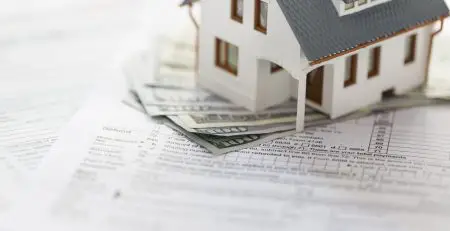So, you are thinking about buying a home. (Congratulations! This is a big step and you should celebrate that fact.) It is not every day that you can buy a home, which is why you need to be very careful for the next few months. There are several things that you need to consider during your quest to become a homeowner. It will not be an easy process, especially on the financial side, but it will be worth it later on in life. You will end up with a house that you own. (Nothing sounds better, except maybe, winning the lottery.)
Can You Become a Homeowner?
The easy answer is yes, you can become a homeowner. Anyone can become a homeowner and own a house with a garden. (Or pool, or garage, whatever works for you.) The hard answer is, yes, you can become a homeowner, but it might not be an easy task. You will need to carefully calculate your finances and keep your budget in check. There is no room for mistakes when it comes to becoming a homeowner. (Maybe one or two really small slip-ups.)
Now that you know that you can, indeed, be a homeowner, you need to focus on how you can become a homeowner.
How Can You Become A Homeowner
In order to become a homeowner and own a house you’ll need to do a lot of things to keep your head above water. Of course, buying a house is a great investment. (No more rent every month for you!) but it should come as no surprise that buying a house is a great responsibility. You need to prepare yourself for what comes next, and remember one important thing. Buying a home is hard now, but it will be worth it later on. You will need to remain vigilant and consistent in your hunt for your forever home. (Or, long term home, at least.)
Do Your Own Research
The first thing you need to do is research your way to tomorrow. (We don’t mean that literally.) You are buying a home, so it is your responsibility to make sure you look through the home purchase process and learn how it works. Also, the perfect home won’t just fall in your lap, you will have to look for it. In that case, make sure you look at available houses to figure out whether, or not, you can afford one. Make sure that the home you are looking for is within your price range and not the other way round. Simply put, consider houses that are in your price range. Don’t change your price range for a specific house. (If you do that, then you will find yourself in a whirlwind of financial trouble.)
Budget Your Way Into Homeownership
Speaking of price range, you should create a budget for all of your expenses. You should not consider buying a house before you create a carefully-constructed budget. The budget you create should include: your debt, your income, and all of your expenses. When you are creating the budget, make sure you add realistic costs on homeowner-associated expenses. This includes: homeowner insurance, property taxes, and maintenance. With this budget, you will have a rough idea of how much you will spend as a homeowner and how much you can afford. (There is no point in buying a mansion, if you can’t afford to furnish it. Keep that in mind while you are looking for a house.)
Work on Getting Prequalified for a Loan
An important step is that you should consider getting prequalified for a home loan from a lender. You will need to meet with a loan officer to discuss your financial situation and your chances of getting a loan. Typically, a mortgage lender will assess your financial background. Your financial background will allow a mortgage lender to understand your financial stability. Furthermore, your financial background and performance will determine whether you prequalify for a loan, or not. Getting prequalified for a loan will help you understand the price range that you can afford to buy a home. This is good because you won’t have to worry about overwhelming mortgage payments and defaulting on your home loan. (Remember that prequalification of a mortgage gives you a general idea of your price range, but the lender makes no promises.)
Improve Your Credit Score (Or Keep It in the Green)
One of the main things that you should focus on is your credit score. Your credit score will influence your interest rate. There are three factors that can really hurt you when it comes to credit, those are: having no credit, having average credit, or having bad credit. If you’re suffering from any of these, you’ll need to do whatever you can to improve your credit score. As an example, you should have a minimum 620 FICO score to qualify for a conventional mortgage. You might find other loans that do not have credit score eligibility, but that is not the standard loan you might be familiar with.
When you are considering looking for a mortgage lender, then you should listen to Peter Boomer, the executive vice president at PNC Bank. He states that you should “Find someone that not only has a good reputation, but also someone you feel connected with. Someone who is willing to build a relationship with you, not only help you with figuring out how much you can afford but one that will help you figure out how much you want to afford.” (Wichter)
Save To Pay for a Down Payment
We cannot stress the importance of handling your finances enough. One of the other things that you should consider while you are handling your finances is saving up for a down payment. In order to buy a new home, you will need to pay a down payment to the lender. The down payment is a form of financial commitment that you make in order to buy the home. When considering a down payment, the most important question to consider is “how much?”. How much will you need to pay for a down payment? A good rule of thumb is to provide a 20% down payment on the home’s purchase price. However, if you do not have that much money saved up, then you can consider other mortgages that allow cheaper down payments. There are mortgages that require a down payment that could reach 10%, 5%, or even 0%!
Get Your Debt Under Control (As Much As Possible)
It might not be believable, but it is perfectly natural that you have debt. There are about 300 million Americans who are in debt. If you have too much debt, you might not be able to build equity enough to buy a home. Simply put, if your debt is all over the place, you will need to keep it in check or you might not be able to be a homeowner. Make sure you create a payment plan with an end date in sight so that you can structurally pay for your debt. With lenders, you do not have to be financially “spotless.” They do not expect you to be debt-free. But, they expect you to have your debt under control.
Look For the Best Mortgage Type That Suits You
There are different types of mortgages that you can choose from. Home loans are not one-size-fits-all. Not every person has the same financial situation so you should make sure that you have different mortgage options to choose from. The main factors to consider while determining your ideal mortgage type are; the house you are buying and your current financial situation. You can ask for help from a professional or get recommendations from friends and family. If you are considering a fixer-upper home, for example, you should consider an FHA loan, but you should keep in mind that a FHA loan has certain limitations that you will not find in standard mortgages.
Do Not Rush Into Buying a Home
Remember that buying a home takes time and money. This means that you shouldn’t rush into it. As much as the prospect of owning a home is exciting, you should wait it out to make sure that you are choosing the right home. It is all about timing, really. You need to determine if you are financially ready for the responsibilities of a home. (Not to mention the mental aspects of owning a home.) If you are a stickler on time, then you should carefully construct a timeline that is both realistic and suitable for your situation. There is nothing wrong with taking your time, but you might face trouble in the future if you rush into it.
Talk to An Expert (After You Have Done Your Research)
After you have ripped through hundreds of home-owning articles and sources, it is time to think about talking to a real estate agent. There are many ways a real estate agent can facilitate the home purchasing process. You can never go wrong by speaking with a real estate agent. They can normally find a scam in the midst of your options, even if you do not see it. Also, they can help you understand the home purchasing process. If that does not convince you, then you should know that real estate agents can help negotiate the home purchase price for you. (You can find them online or ask your friends and family for a recommendation.)
Look At Multiple Homes Before Settling Down
We’re sure that there will be a house you absolutely fall in love with and It might seem like the perfect fit, but you should not settle after seeing just one house. You should consider looking at multiple homes that you can afford and be sure you look at the amenities of each house and any special conditions. (There can be some pretty outrageous things sellers ask for) Once you have weighed your options, you can decide which house is better suited for you. (Who knows, maybe the dream house you fell in love with is the right one for you after all! But it’s best to be 100% sure)
Now, Before You Sign a Purchase Contract
After all that planning, you will need to think of a few things before you sign the contract. Yes, it is exciting and you are so close to becoming a homeowner. But, you should make sure that you are as cautious as possible. After all, you do not want to regret it later on. (This is not a gym membership or a Hulu subscription. You are buying a house. We’ll let that sink in for a minute.)
The first thing you should do is inspect the house that you plan on buying. Look for any maintenance issues or repairs. If you find any concerns, you should talk to your lender about them. (If you are lucky, then your lender could offer to fix it for you or you can require the seller to fix any issues before you sign.) Be as thorough as possible in the inspection. You never know what you might find. Also, you should consider the area around your home. Does the area have a high crime rate? Is it a good area for your kids, both present and future? Consider all these things when you are looking for a potential forever home.
Conclusion
In conclusion, you should be very careful when you are buying a house. Taking your time and proper research is key when it comes to finding where you will live. This is a very important decision so you don’t want to rush it! But, above all, you should be very proud that you are in a financial space to consider buying a home!











